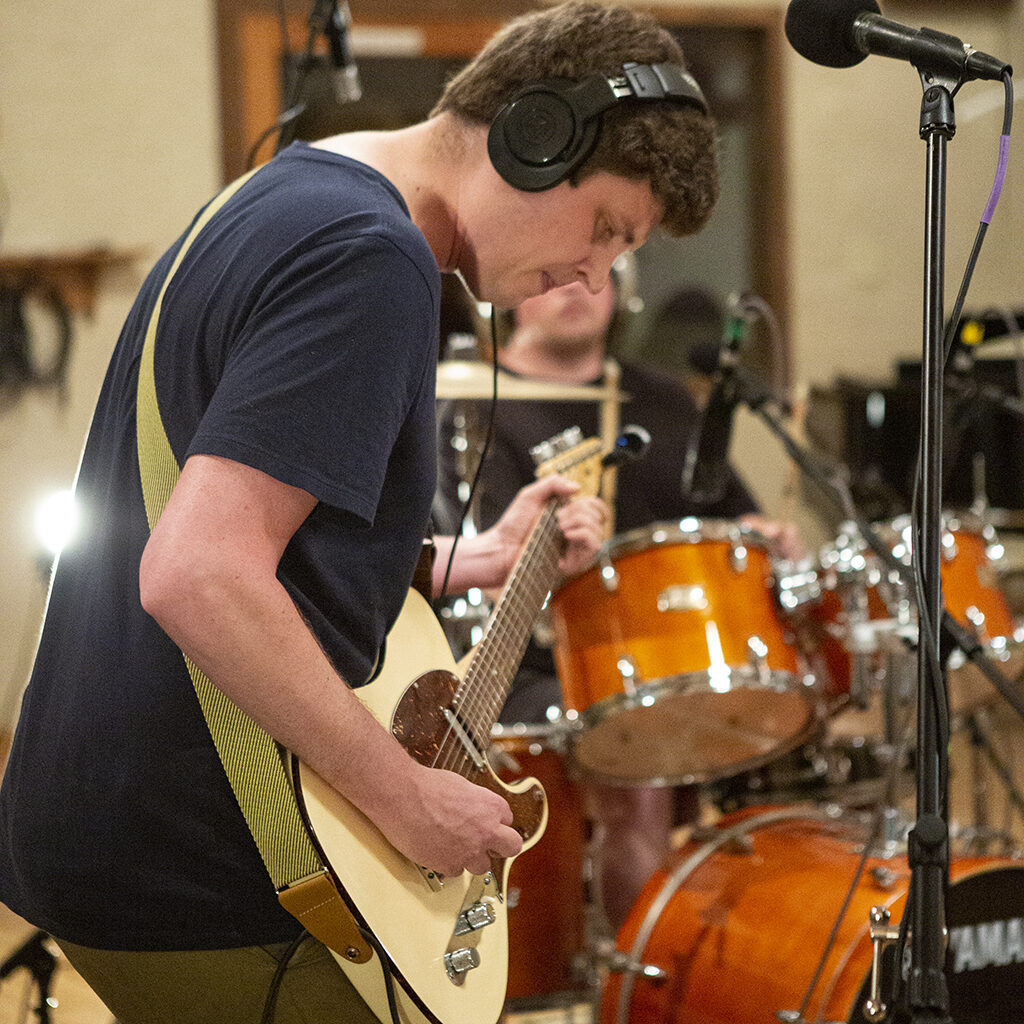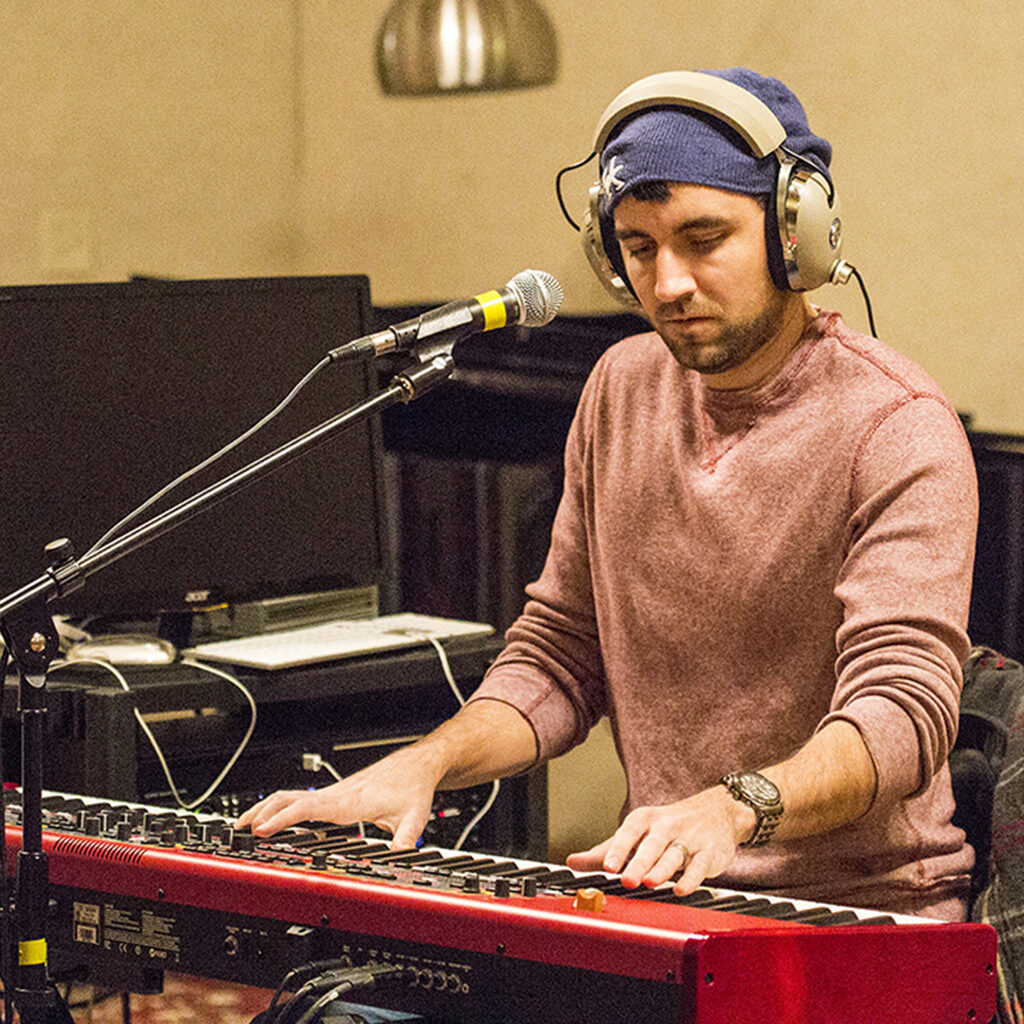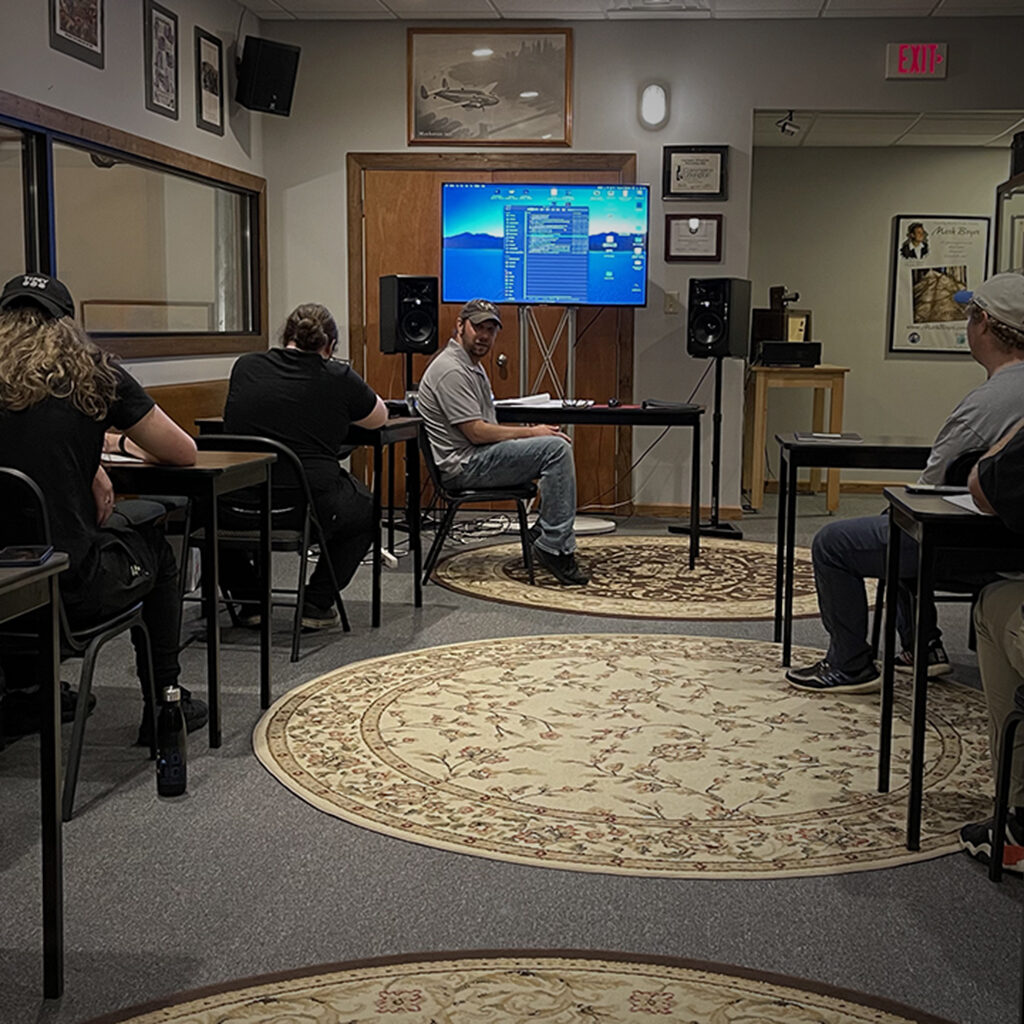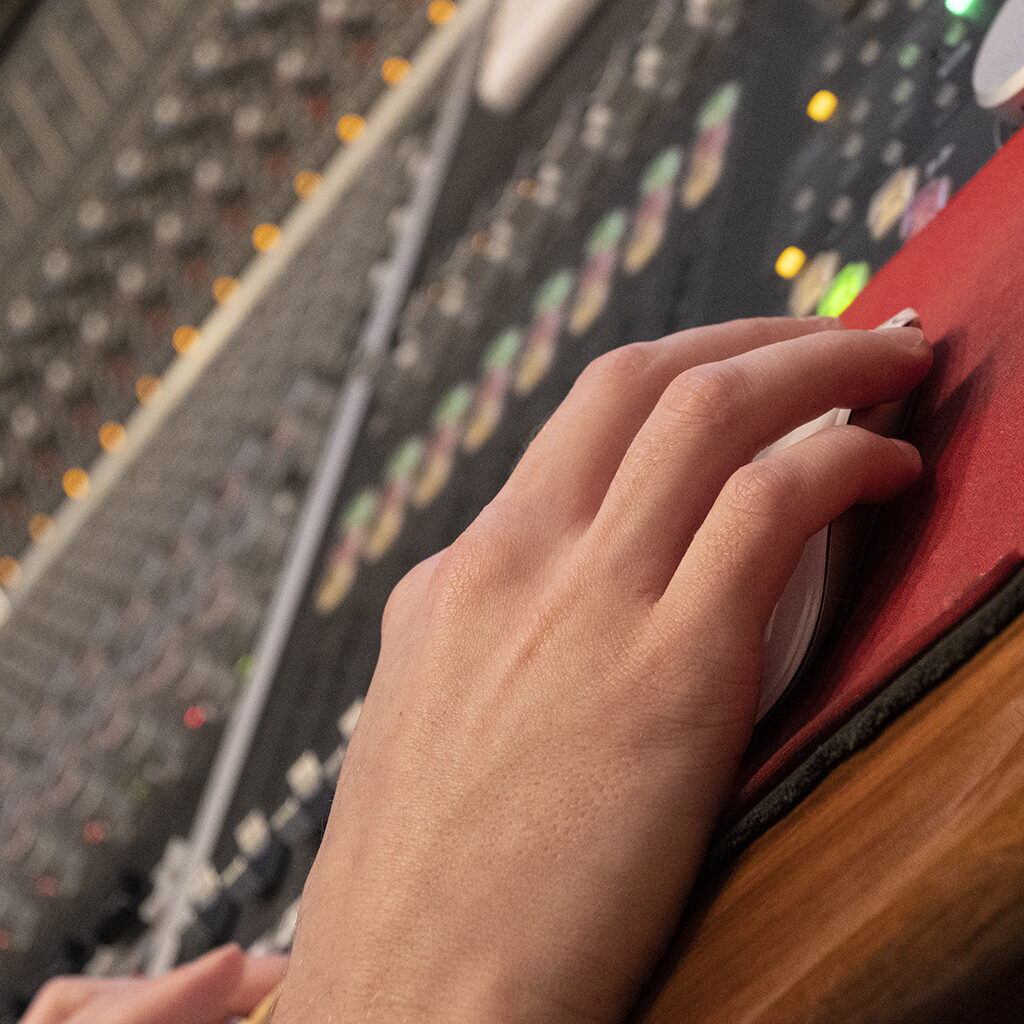Audio Engineering
Like almost all of our classes, Audio Engineering 1 is a hands-on project-based module. It is LSRA’s foundational course and it breaks down into 3 phases. The first, Analog and The Science of Sound, explores mixing analog sound. Using this concept we teach students the basic principles of working with audio on an analog board.
Students will then advance into a digital mixing lab. Post Production and Editing is where they put the fundamental principles of analog sound to work in a modern digital mixing environment. Pre-recorded material is distributed to the students and they spend time one on one with an instructor learning how to mix in a modern setting. Students receive in-depth training on the industry standard software, Pro Tools.
Finally, in Live Studio Recording, students learn the art of recording. Blending the concepts of the analog and digital phases, students start from an empty room and turn it into a full scale recording session. Through this process they learn about microphones and their proper placement, the acoustic space and how it affects the recording, the ever important connection between engineers and the artists, and much more. The end goal of this phase is to have students set up and run the session on their own.


Advanced Audio Engineering
Audio Engineering 2 takes a student’s mixing abilities to the next level. This course is divided into two modules. The first explores Waves software, a high end suite of sound processing tools used by many professional engineers in the industry. LSRA is one of only ten schools in the world qualified to offer classes that lead to a Waves Certification.
The second module takes students through the final procedure before public release, Mastering. Whether the project is played on TV, radio, or an app, this secretive process puts the final touches on a project. This is the last line of defense to ensure your audio is output at the highest quality.

